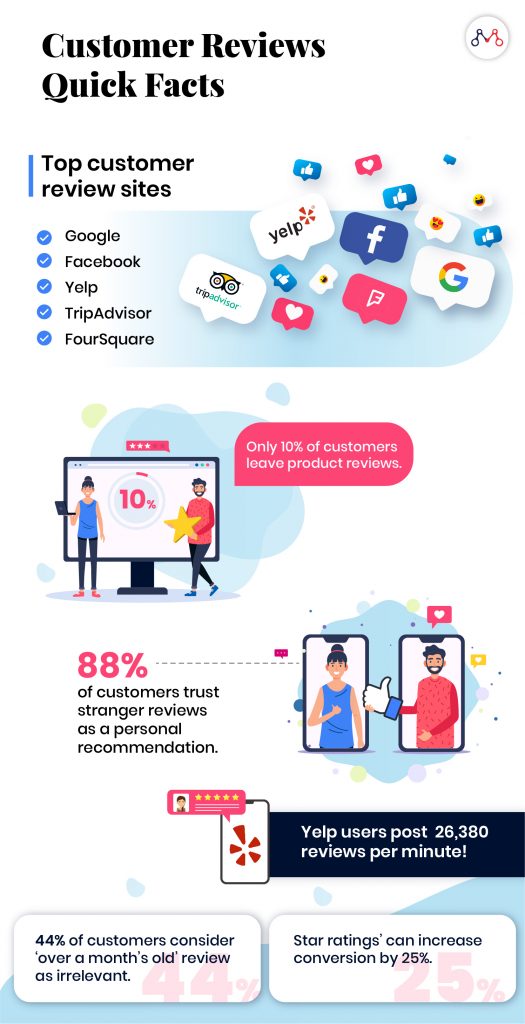Customer experience is a top priority for businesses. While customer feedback is important to improve products/services according to user preferences; reviews play the role of word-of-mouth communication in the digital world. For instance, 86% of millennials admit they’re influenced by negative reviews, according to Dimensional Research.
Organizations have started to invest in customer feedback systems to prove their customer-focused vision. However, the benefits from customer feedback converge to responding to them at the right moment. Let’s take a look at the importance of capturing customer opinion at the right time instead of behindhand traditional methods.
Why Act on Customer Opinions Promptly?
According to the Bright Local consumer review survey, 44% of customers consider more than a month’s old review as irrelevant. Upgrading the product as per customer feedback in a short time is indeed a challenge.
Traditionally, organizations employ advocacy, legacy, support teams, and community managers to look after customer reviews on different social platforms. Monitoring different platforms and communicating internally to resolve customers’ concerns are tedious and account for a delay in action. This is where the customer feedback system simplifies the process. But before, let’s look at the benefits of addressing customer feedback in this era of the consumer internet.
- A chance to improve products and services: It’s obvious, brands do thorough market research before finalizing a product. But still, the final product carries some scope of improvement. Apart from beta testing, customer feedback is also a useful resource to improve product post-release.
- Delivering value to customers: Customer loyalty is hard-won in the world of over 200 million companies! With empathy and understanding how a customer feels for the product brands can establish an emotional connection with the customer and hence their loyalty.
- Helps in making a fact-based business decision: The decision to accommodate customer preferences in the existing product or introduce a new product should not be based on loose guesses. Analyzing customer reviews can help organizations make better business decisions.
- Measure customer experience and satisfaction: Customers are the actual brand advocates. Their experience and satisfaction determine a product’s success. Walker study predicts- by 2020, customer experience will become the key brand differentiator surpassing price and product. In this regard, Zappos’ customer service is an epitome of customer experiences.
Also, read – Customer Journey is the NEW Product.
Customers use different channels to share their opinion about a product or service. Microsoft reports, “66% of consumers have used at least 3 different communication channels to contact customer service.” This indicates that customers want organizations to address their feedback or complaint immediately.

How Are Organizations Leveraging Customer Feedback and Reviews?
Customer reviews are a reliable source of information about a product/service to potential customers. According to Bright Local, 93% of customers read reviews to determine how good or bad a local business is. Customer reviews are therefore an influential source for branding and marketing. Freethinkers have identified the importance of customer feedback and that’s why we see a growing number of e-commerce marketing platforms.
For instance, Yotpo provides a one-stop solution for visual marketing, loyalty, and referrals based on customer feedback. Companies can collect customer reviews and share them across different social media channels. They can also build loyalty and referral programs to develop a long-term association with customers.
Similarly, Trustpilot has over 300,000 businesses reviewed by customers. It is providing companies with a platform to leverage customer reviews to influence future buyers. It helps startups to get more reviews, engage with customers, and analyze the results to improve.
Final Thoughts
According to Womply, businesses with a free listing on at least 4 review sites earn 58% more revenue. This indicates that customers easily trust strangers who’re not friends to the company. Organizations can leverage the power of reviews through a customer feedback system to create ‘beyond satisfactory’ experiences for customers.
Knowledge thats worth delivered in your inbox





